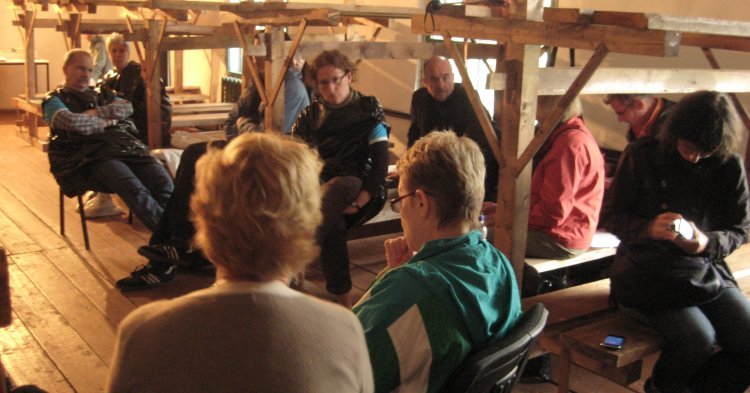In two consecutive days - December 28th and 29th - the Russian Supreme court and the Moscow city court revoked the legal status of both the International Memorial and Memorial Human Rights Center. They granted the request of the prosecutor’s office, which, among other things, accused the movements of violating the “foreign agents” law by failing to label publications, including social media posts, with the necessary “foreign-agent” designation.
A symbol of an era
Considered the most prominent and oldest human-rights group in Russia, Memorial emerged during the twilight of the Soviet Union, when several volunteer societies united in 1989. The first honorary chairman of this movement was the renowned scientist, Nobel prize laureate and Soviet dissident - Andrei Sakharov - who gave the name to the Sakharov Prize for freedom of thought. Memorial’s goals were a reflection of the glasnost (openness) and perestroika (reconstruction) reforms.They aimed for a greater understanding of the past, freeing and opening up discussion on previously withheld information. Memorial became known primarily for researching the period of repression in the Soviet Union - especially under Stalin, preserving the memory of the period’s victims and warning against totalitarian practices.
Now, after more than 30 years, this symbol of an era has been ordered into illegality for allegedly breaching the law on “foreign agents”. Under this piece of legislation, politically active figures and organizations that receive funding from abroad must disclose this in publications and include a mandatory disclaimer. Memorial Human Rights Group was designated as a foreign agent in 2014, while International Memorial was blacklisted in 2016. However, these organizations did not include the “foreign agent” under their publications, for which, according to the prosecution, they had to stand trial.
A continuing legacy
Nevertheless, cases of this kind tend to have a stronger political motivation - as Memorial representatives themselves have pointed out. The prosecution seemingly confirmed this by describing the movement as a speculative organisation that creates a “false image of the USSR as a terrorist state”. At least that is how prosecutor Alexey Zhafyarov phrased it in court, despite the actual content of Memorial’s activities not being the formal subject of the trial. In this way, however, he brought clarity to the real reason for the trial - those who venture into the darker corners of Soviet, and hence Russian history, cannot operate on Russian soil.
However, this is beyond more than the suppression of an independent NGO with over a thirty-year old history. As a matter of fact, Memorial has stated that there will be no changes in its work. Even before the ruling, it stated that it would seek all possible legal ways to continue its activity. The European Court of Human Rights has already called on the Russian authorities to suspend the liquidation of Memorial until Memorial’s appeal, which has already been lodged, has been heard. European countries have condemned the decisions of the courts.
The existence of organizations such as Memorial meant there was a space for keeping the memory of the murky sides of Russia’s history alive. But, recent actions by local authorities suggest that space is narrowing, and the roles of independent organizations are attenuating, leading to the government’s monopolization of the interpretation of history.
Finding truth in history
Historical narration has been indispensable for any political system in the past, and continues to be to this day. To this end, some historical events have been glorified, while others are deliberately hushed up. And Soviet history is full of these double-edged swords - from rapid modernization for the cost of millions of lives, the defeat of Nazism coupled with hair-raising political decisions. Life during Stalin’s Great Terror and under Gorbachev are almost incomparable. Lasting 70 years and having so many different events and characters, it is impossible to judge Soviet history in one simple narrative and shun those events that do not fit in.
Memorial - as its name suggests - was a reminder of past atrocities, consolation for victims and a promise that the totalitarian past is just that - the past. It kept past grievances alive not only by retelling the story, but by pointing out the need to take into account and take responsibility for even the negative aspects of history. Ordering the liquidation of Memorial, even if not effective immediately, indicates the tendency of silencing uncomfortable parts of the Soviet past. Recognizing one’s historical accountability would mean stepping out of the prison of the past and making a bold step forward. As EU foreign policy chief Josep Borrell tweeted after the trials “Critical looks on their past are essential for the healthy development and progress of societies”.

Follow the comments: |
|
